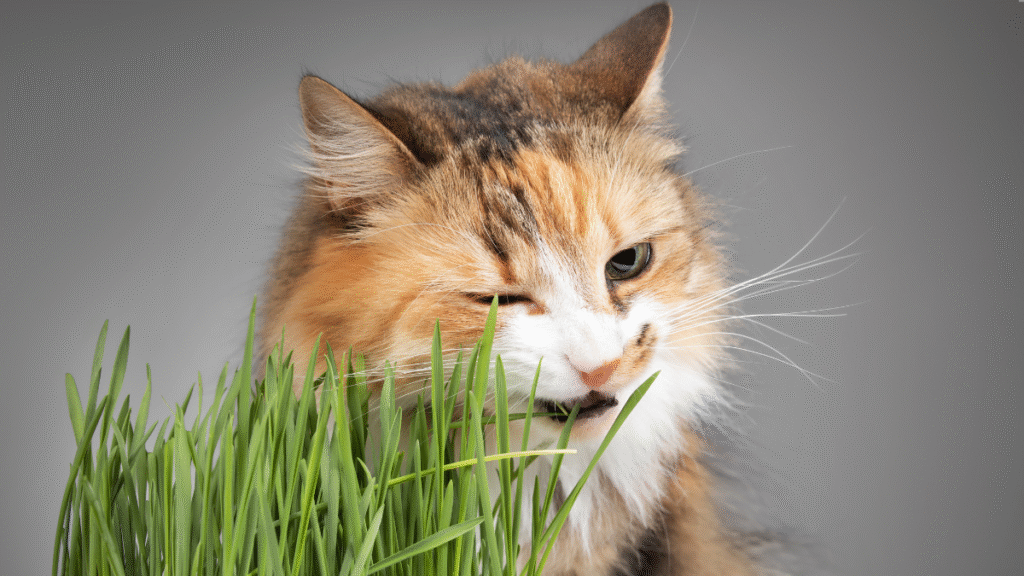All cats are different — some are laid-back, while others are endlessly curious. Some are shy and skittish, while others are bold and adventurous. But no matter what kind of cat you have, one thing most felines share is a love for food.
As an owner, it’s tempting to share everything you eat with your pet, especially when they give you those pleading eyes while you enjoy dinner.
However, the truth is that some human foods are simply too dangerous to offer, no matter how hard your kitty meows and begs. Ingesting the wrong food can cause severe stomach problems — or worse — for your four-legged friend.
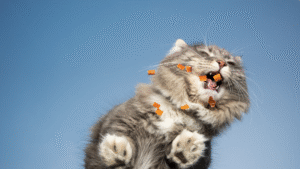
The Importance of Feeding Your Cat Safely
Feeding your cat the wrong foods is one of the most common — and preventable — causes of feline illness. This guide will cover five things you should never feed your cat, explain why they’re dangerous, and suggest safer alternatives.
Whether you’re a new cat parent or a lifelong owner, understanding these dangers can help keep your cat healthy and ensure they live a long, happy life.
1. Chocolate and Caffeine
When you think of toxic foods for pets, chocolate is likely one of the first that comes to mind. While many cat owners are aware that chocolate is dangerous for dogs, fewer realize it’s just as harmful — if not more so — for cats.
Why it’s dangerous
Chocolate contains two toxic compounds: theobromine and caffeine. Cats cannot metabolize these substances efficiently, and even small doses can lead to vomiting, diarrhea, rapid breathing, tremors, seizures, or even death.
The darker the chocolate, the higher the concentration of toxins — and the more dangerous it becomes for your cat.
What about caffeine?
Caffeine, found in coffee, tea, soda, and energy drinks, has the same toxic effects as chocolate. Cats are far more sensitive to caffeine than humans, so even tiny amounts — like licking coffee from a spoon or sipping spilled soda — can cause restlessness, a racing heartbeat, or muscle tremors.
Safe alternatives
Instead of sharing human treats, offer your cat catnip, freeze-dried meat snacks, or vet-approved cat treats. Never give your cat chocolate, coffee, or caffeinated products — no matter how much they beg.
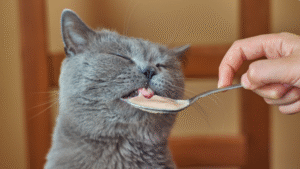
2. Onions, Garlic, and Chives
Onions, garlic, and other members of the allium family — including chives, leeks, and shallots — are highly toxic to cats. These ingredients are often hidden in cooked dishes, sauces, soups, and even baby food, making accidental exposure easy.
Why it’s dangerous
Alliums contain disulfides and thiosulphates, which damage red blood cells and can lead to hemolytic anemia. This condition prevents your cat’s blood from carrying enough oxygen, leading to weakness, lethargy, pale gums, rapid breathing, and loss of appetite.
Symptoms may take several days to appear, but the damage can be severe. Cooked, powdered, or raw — all forms of onions and garlic remain toxic.
Safe alternatives
When making homemade cat food or treats, use parsley or catnip for flavor instead. Always read ingredient labels carefully before offering any human food or store-bought treats to your cat.
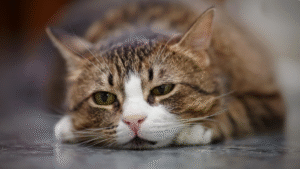
3. Dairy Products (Yes, Even Milk)
The image of a cat happily drinking milk from a bowl is charming — but misleading. While kittens drink their mother’s milk, adult cats lose the enzyme lactase, which is needed to digest lactose, the natural sugar in milk.
Why it’s dangerous
Because most adult cats are lactose intolerant, dairy products like milk, cheese, cream, and yogurt can cause gas, bloating, diarrhea, and general stomach upset.
Even lactose-free milk, though less harmful, should be offered sparingly. Too much dairy can lead to weight gain and nutrient imbalances over time.
Safe alternatives
If your cat enjoys milk, you can buy special lactose-free “cat milk” from pet stores. However, fresh, clean water should always be your cat’s main source of hydration.
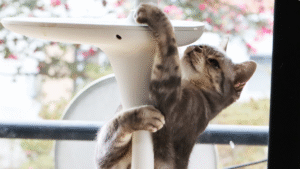
4. Raw Meat, Eggs, and Fish
Raw feeding has become a popular trend among some cat owners who believe it’s more “natural.” But while wild cats may hunt and eat raw prey, domestic cats face different health risks.
Why it’s dangerous
Raw meat and eggs can contain Salmonella or E. coli, which cause serious gastrointestinal infections in both cats and humans.
Raw fish poses an additional risk because it contains an enzyme called thiaminase, which breaks down vitamin B1 (thiamine). A lack of thiamine can cause neurological issues such as seizures, loss of coordination, or even coma.
Raw eggs also contain avidin, a protein that prevents proper absorption of biotin (vitamin B7) — an essential nutrient for healthy skin and fur.
Safe alternatives
If you want to give your cat meat or fish, cook it thoroughly with no added salt, oil, or seasoning. Lean cuts of cooked chicken, turkey, or plain salmon or tuna (in small amounts) make excellent protein-rich treats.
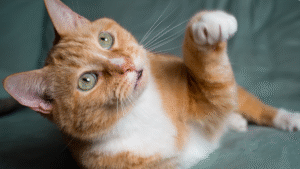
5. Alcohol and Raw Dough
It might seem obvious that alcohol is toxic to cats, but even the smallest amounts can be fatal. Surprisingly, raw dough made with yeast can be just as dangerous.
Why it’s dangerous
Alcohol affects cats much more severely than it does humans. Even a teaspoon of beer, wine, or liquor can cause vomiting, diarrhea, disorientation, difficulty breathing, and potentially coma or death.
Raw dough poses a “double danger” — the yeast ferments inside your cat’s warm stomach, producing both alcohol and gas, which can lead to bloating, alcohol poisoning, or a stomach rupture.
Safe alternatives
Keep alcoholic drinks and raw dough well out of your cat’s reach. If you want to treat your cat, opt for cat grass, commercial cat treats, or small pieces of plain cooked chicken instead.
Other Foods to Avoid
In addition to these five major offenders, here are other foods that can seriously harm your cat’s health:
-
Grapes and raisins: Can cause kidney failure.
-
Xylitol (found in sugar-free gum and candy): Causes low blood sugar and liver failure.
-
Fat trimmings and bones: Risk of pancreatitis, choking, or intestinal blockages.
-
Salt and salty snacks: Can cause vomiting, dehydration, and sodium poisoning.
-
Dog food: Lacks key nutrients like taurine, which cats need for heart and eye health.
Always keep these foods out of your cat’s reach — it’s better to be safe than sorry.
What To Do If Your Cat Eats Something Toxic
If you suspect your cat has eaten something dangerous, don’t wait to see what happens. Act immediately.
-
Do not induce vomiting unless directed by a veterinarian — some toxins cause more damage coming back up.
-
Call your veterinarian immediately, or contact the ASPCA Animal Poison Control Center at 1-888-426-4435.
-
Be ready to provide details about what your cat ate, how much, and when.
-
Keep your cat calm, warm, and comfortable while waiting for professional help.
Time is critical in poisoning cases. Acting quickly can make the difference between life and death.
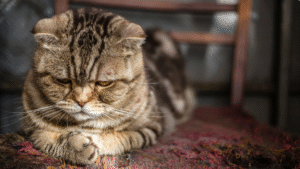
How to Keep Your Cat’s Diet Safe and Balanced
Cats are obligate carnivores, meaning their bodies are designed to thrive on animal protein — not human food. The best way to keep your cat’s diet balanced is to feed high-quality cat food and healthy, vet-approved treats.
Here are a few simple tips:
-
Check ingredient lists for hidden toxins like onion or garlic powder.
-
Avoid giving table scraps, no matter how small.
-
Provide fresh water daily.
-
Store human food securely out of your cat’s reach.
-
Schedule regular vet checkups to monitor your cat’s health and diet.
Final Thoughts
As a cat owner, you have the power to protect your feline companion. While it may be tempting to share your food, remember that even a small amount of certain human foods can cause serious harm.
Avoiding these five dangerous foods — chocolate and caffeine, onions and garlic, dairy products, raw meat and eggs, and alcohol or raw dough — will help prevent poisoning and unnecessary suffering.
Save pin for later
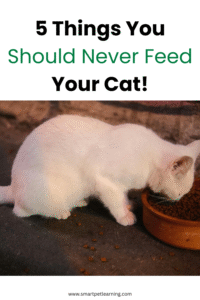
- Fun Brain Games for Smart Dogs - December 29, 2025
- How to Socialize Your Dog Safely - December 29, 2025
- Secrets to a Well-Behaved Dog - December 29, 2025
